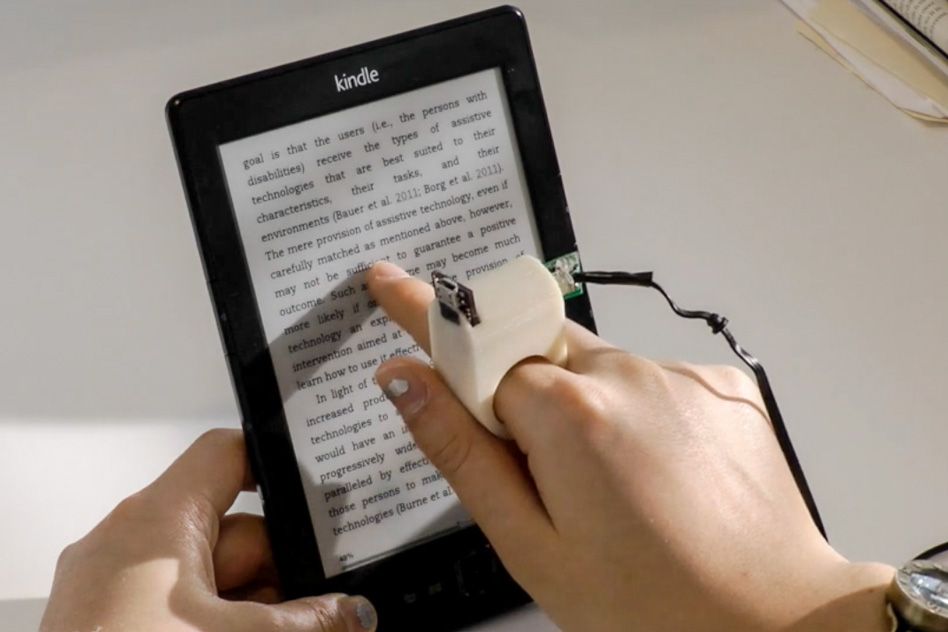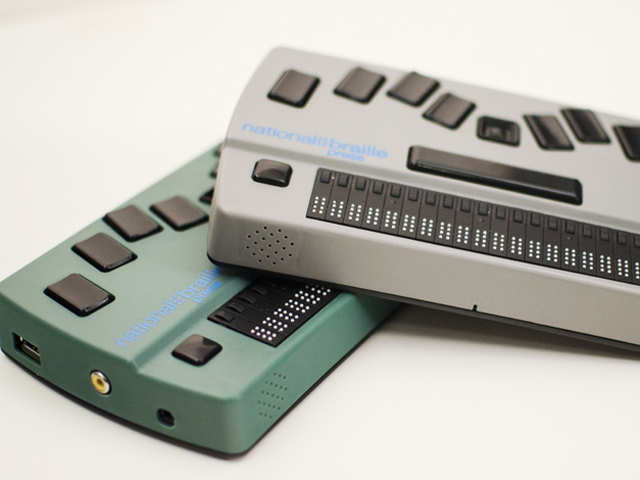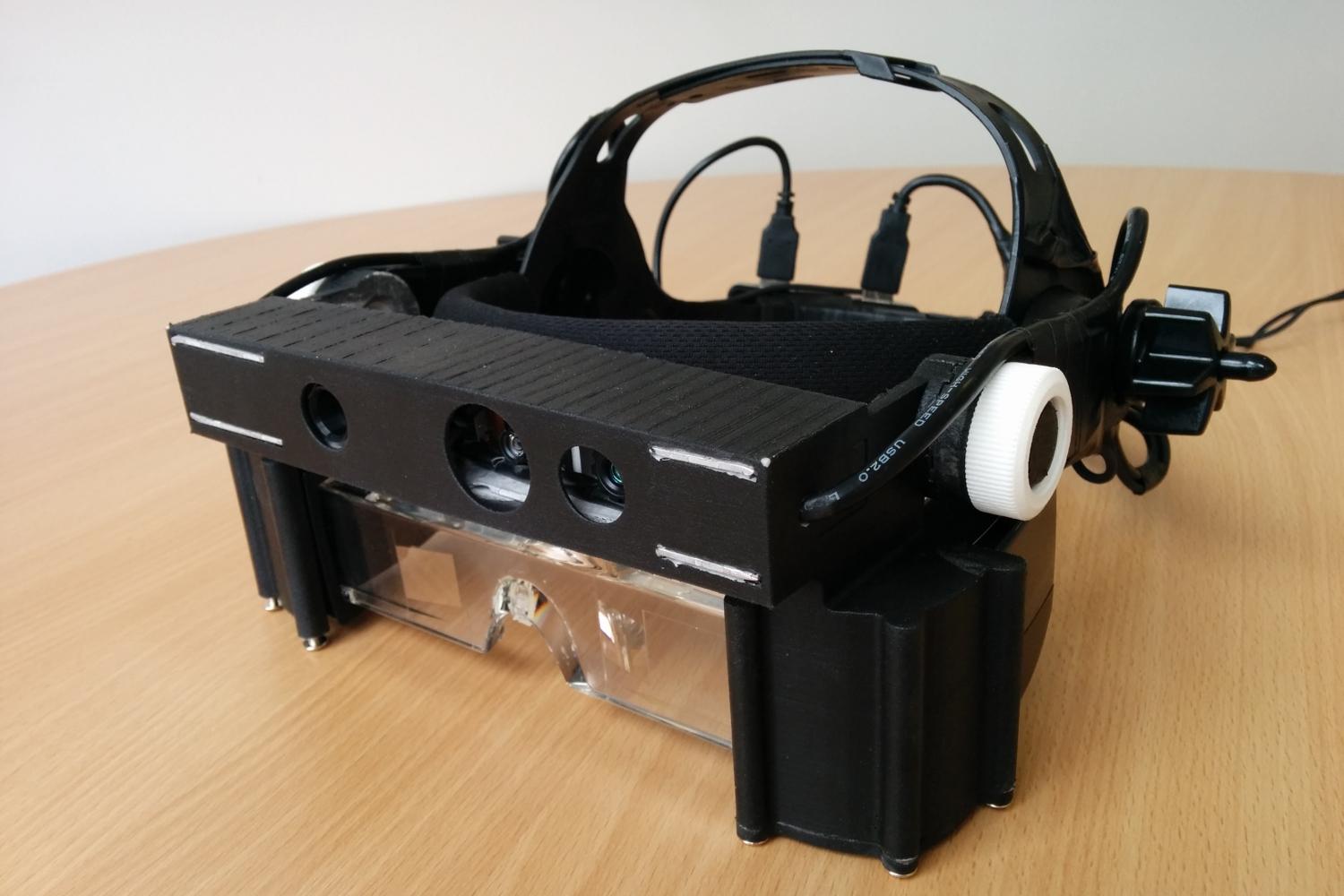Smart Glasses for the Visually Impaired: Advances in Vision Support
Smart Glasses for the Visually Impaired: Advances in Vision Support
Blog Article
Empowering Freedom With Assistive Modern Technology for the Blind
The combination of assistive innovation right into the lives of individuals with visual problems stands for a considerable improvement in promoting freedom and self-sufficiency. From cutting-edge screen readers to sophisticated wise walking sticks, these devices not only improve everyday navigation and communication however also encourage individuals to involve meaningfully in different elements of life. As we explore the myriad benefits and real-world applications of these innovations, it comes to be crucial to examine the underlying factors that add to their efficiency and the potential for future developments in this essential area.
Review of Assistive Modern Technology

The development of assistive technology is grounded in principles of inclusivity and empowerment. Technologies in software program, equipment, and sensory enhancements offer users with alternatives customized to their specific demands. From screen readers that transform message to speech, to responsive devices that share details with touch, these tools transform the means individuals involve with their environments.
In enhancement to practical applications, assistive innovation promotes greater social incorporation and involvement in various sectors, including education and learning and employment (Screen readers for the blind). As study and advancement proceed to evolve, the capacity for assistive innovation to even more improve the lives of visually impaired individuals continues to be encouraging, paving the way for a much more fair society where every person can prosper
Types of Assistive Tools
A range of assistive tools have actually emerged to sustain people with visual disabilities, each created to satisfy certain demands and enhance day-to-day performance. These tools vary from low-tech remedies to modern developments, giving varied choices for users.
Low-tech tools consist of magnifiers and large-print materials that help in reading and writing. Braille devices, such as Braille stylus pens and slates, allow tactile reading and interaction. Positioning and flexibility aids, like white canes, aid individuals navigate their setting securely.
On the greater end of the spectrum, digital magnifying systems and display readers supply considerable assistance. Electronic magnifiers enable users to increase the size of text and photos on displays, while display readers transform digital content right into manufactured speech, promoting accessibility to information on smartphones and computer systems.
Mobile phone applications additionally play a vital role, providing attributes like text acknowledgment and navigating help. Wearable modern technology, such as smart glasses furnished with enhanced truth, is becoming a promising device to improve situational understanding.
Advantages of Assistive Innovation
The combination of assistive technology considerably boosts the top quality of life for individuals with visual problems. These innovations encourage customers by promoting freedom, enabling them to navigate their atmospheres better and do daily jobs with higher simplicity. For instance, display visitors and zoom software program allow individuals to gain access to digital information, fostering expert and academic chances that may have formerly run out reach.
Additionally, assistive tools such as smart walking canes and general practitioners applications supply real-time navigation assistance, boosting mobility and safety. This enhanced freedom not just boosts self-confidence but likewise motivates social interaction, permitting users to participate more fully in their neighborhoods.
Assistive innovation also assists in interaction, aiding individuals link with others with voice recognition and text-to-speech applications. This capability is essential for keeping relationships and accessing important details.
In addition, the modification options available with lots of assistive innovations guarantee that customers can tailor devices to their certain needs, better boosting use and performance. In general, the advantages of assistive modern technology for individuals with aesthetic problems are profound, advertising an extra comprehensive culture where every person can pursue their aspirations and objectives.
Study and Success Stories
Highlighting the transformative influence of assistive technology, many study illustrate just how people with visual problems have actually effectively integrated these tools right into their every day lives. One engaging example entails a college pupil who utilized display reading software program to navigate academic materials and on the internet resources successfully. This modern technology not just promoted her education and learning however additionally improved her confidence in participating in conversations and group tasks.
Another study features a specialist that uses a smart device application created for navigation and item acknowledgment. By utilizing this app, he has gained back autonomy in both his personal and workplace, enabling him to commute individually and involve with colleagues a lot more successfully.
In addition, a senior citizen shared her experience with braille e-readers, which enabled her to access a vast variety of literature and remain gotten in touch with her area via publication clubs.
These success stories highlight the critical role of assistive innovation in promoting freedom, enhancing lifestyle, and promoting social integration for individuals with visual disabilities (Wearable technology for low vision). By embracing these cutting-edge tools, users can get rid of difficulties and seize chances that add to their individual and expert gratification

Future Fads in Assistive Innovation
Advancement in assistive technology is poised to redefine the landscape of support for people with aesthetic impairments. Emerging trends stress the integration of synthetic knowledge (AI) and machine learning, which improve check over here the functionality of devices that aid with navigation and info access. As an example, AI-driven applications are currently with the ability of translating visual data in real-time, enabling customers to involve with their atmosphere a lot more individually.
Furthermore, the development of wearable innovation is progressing swiftly. Smart glasses furnished with enhanced fact (AR) can offer audio summaries of environments, transforming exactly how customers connect with public areas. These devices not only advertise check this site out freedom but likewise foster social addition.
Furthermore, the Net of Things (IoT) is making homes smarter, permitting for smooth connection in between day-to-day appliances and assistive devices. This connectivity empowers users by making it possible for automated reactions and voice-activated controls customized to private needs.
Verdict
Finally, assistive technology plays a critical role in empowering individuals with visual disabilities by improving their self-reliance and involvement with their surroundings. The varied series of tools and applications available not only helps with navigation and interaction yet likewise promotes social assimilation and opportunities for expert and personal development. As developments proceed in this area, the potential for enhancing the high quality of life for those with visual impairments will certainly increase, fostering higher autonomy and empowerment.

Report this page